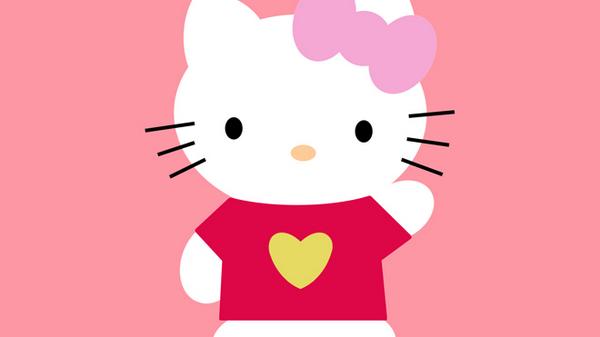
For 40 years, her face has adorned backpacks and lunch boxes, jewelry and theme restaurants, TV shows and even laptops.....
Hello Kitty has long been a staple of Japanese pop culture, but for decades, one expert says, the world has been under a false impression.
Hello Kitty -- despite having a name that's 50 percent devoted to the term that refers to a young cat -- is no feline.
She is, rather, a little girl, the Los Angeles Times reports.
"She's never depicted on all fours," Christine R. Yano, an anthropologist with the University of Hawaii who is curator of a Hello Kitty retrospective at the Japanese American National Museum in Los Angeles in October, told the newspaper. "She is a little girl. She is a friend. But she is not a cat."
Say it ain't so!
It's not a matter of opinion, either, Yano said. When she was preparing written texts for the museum's exhibit, she made the mistake of referring to Hello Kitty as, well, a cat.
Wrong answer.
"I was corrected -- very firmly," Yano told the Times. "That's one correction Sanrio (the company that owns the character) made for my script for the show."
Some other facts about Hello Kitty, according to Yano:
• She's British.
• She is a Scorpio.
• She loves apple pie.
• She has a twin sister, and is a perpetual third-grader.
• Her actual name is Kitty White.
"Hello Kitty emerged in the 1970s, when the Japanese and Japanese women were into Britain," Yano told the Times. "They loved the idea of Britain. It represented the quintessential idealized childhood, almost like a white picket fence. So the biography was created exactly for the tastes of that time."
Wikipedia, for what it's worth, refers to Kitty as a Japanese bobtail cat, though her species isn't made clear on Sanrio.com, where a page devoted to the character's 40th anniversary says she was created "to inspire happiness, friendship, and sharing across the world."
But regardless of whether she's a girl or a cat, she remains vitally important to the Japanese identity, Yano said.
"In talking to Japanese Americans who grew up in the 1970s, they say, 'That figure means so much to us because she was ours,'" she told the Times. "It's something they saw as an identity marker. This is why the exhibition is being held at the Japanese American National Museum. It's about reconnecting her to this community. It gives the whole thing a certain poignancy and power."

Δεν υπάρχουν σχόλια:
Δημοσίευση σχολίου